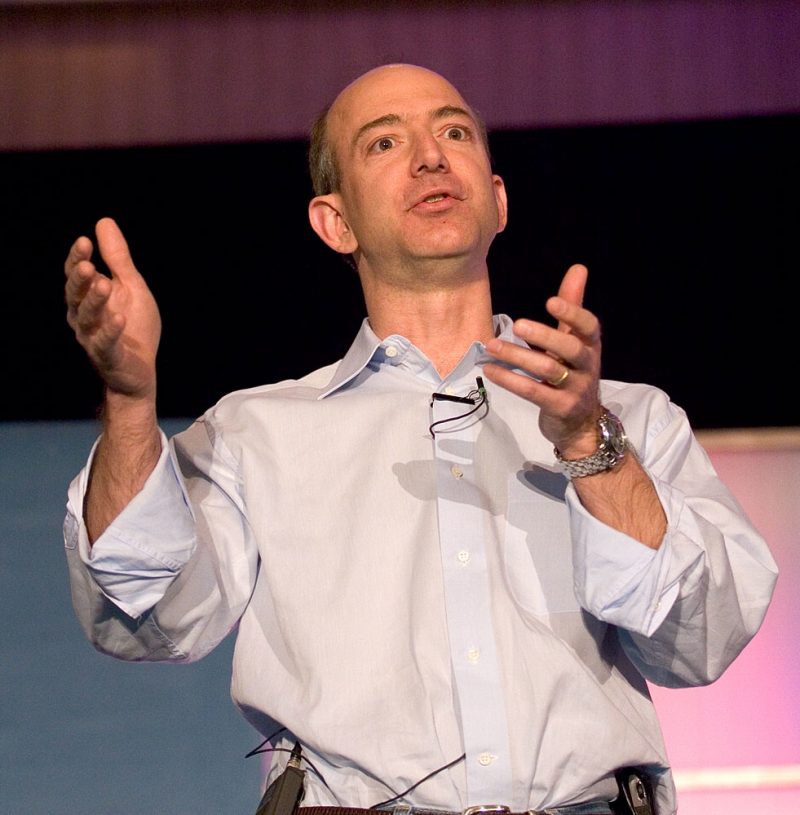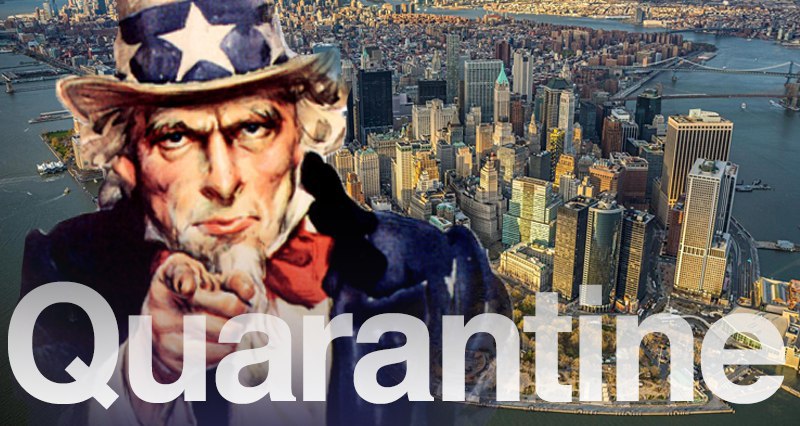Mid-April saw an explosion of protests across the United States calling for freedom of movement and a repeal of lockdown measures. In Kentucky, Washington, Minnesota, Colorado, Virginia, and Michigan, mass acts of civil disobedience in spite of the global pandemic have courted attention from the highest levels of government and the mainstream media. The protest organizers are a loose alliance of mainly the alt-right, supporters of Donald Trump, and traditional conservatives.
Right media outlets were quick to throw their support behind the protests. Fox News host Tucker Carlson thanked one protestor for “exercising [her] constitutionally protected rights” against Chinese-style “totalitarianism” and like-minded talking heads echoed that sentiment. On the other side of the media barricades, liberals attacked the protests as violent, racist, and worst of all – overtly supported by Donald Trump. The Washington Postin particular, owned by Amazon CEO and one of Trump’s arch rivals Jeff Bezos, has unleashed a propaganda bombardment against the anti-lockdown protestors and in support of the Democratic governors behind social distancing measures.
In the very midst of an unfolding crisis, it’s often difficult to discern fact from fiction. Newly published studies claim the lockdown and mandatory social distancing are effective in suppressing the spread of infection. Alternatively, many areas that have nearly continued business as usual, like Sweden, seem to be emerging comparatively unscathed.
Whether mainstream containment methods turn out to be effective or not, it’s important to understand who has a vested interest in the continued paralysis of the American economy. Why are two capitalist billionaires, Donald Trump and Jeff Bezos, at odds with each other over the lockdown? How does their rivalry manifest itself within society?
Capitalist Populists vs. Capitalist Globalists
Since Trump’s 2016 election campaign, Bezos’ The Washington Post has acted as a lead instrument in an orchestra of liberal media hell-bent on obstructing the president at every turn. The Russian collusion investigation, support for Saudi Arabia, and diplomatic talks with North Korea have all been capitalized upon to attack Trump in the press.

Flickr
But the Trump-Bezos blood feud that is flaring up amidst the coronavirus pandemic is more than the clashing ambitions of two people.
As the current global neoliberal system exacerbates income inequality to record levels in the United States, and around the world, the gap is not only widening between workers and capitalists – but between the capitalists themselves. Jeff Bezos’ command over $144 billion in assets affords him significant political influence and power. While Donald Trump’s comparatively small fortune of $2 billion alone affords him far less power than Bezos, his position as president of the world’s largest military and economic power levels the playing field. It’s no wonder why the liberal elites and their corporate media, having had a firm grip on political power under Barack Obama, trained their sights on Trump from the beginning of his election campaign.
In terms of the lockdown, the same liberal elites seem to be working to further suppress dissent from within. Facebook, for example, has come under widespread criticism for removing anti-lockdown protest groups on its platform. YouTube has also been deleting content that challenges the mainstream lockdown narrative as a “violation of community guidelines.” And while mainstream media outlets, like BBC, are attempting to focus public attention on the few internet-based small businesses making modest profits during the lockdown, the real winners are the ultra rich – those who are successful regardless of the situation.
Capitalists excluded from the ultra-rich club generally don’t have control over highly sought after staple commodities during a crisis; they’ve already long been monopolized by the world’s megacorporations.
Both Amazon and Walmart, the latter of which is owned by the richest family in the United States, are forecasting mega-profits as they adjust to the new level of demand in their nearly monopolized industries. At the same time, their low-wage and mostly part time workforces are protesting the abhorrent pandemic-era conditions in which they’re forced to work overtime under threat of dismissal. The monopolization of staple commodities, highly sought after during a crisis, by these megacorporations, means disaster for the majority is a highly profitable opportunity for them.
As for members of the less-rich camp, like Tesla CEO, lockdown critic, and Jeff Bezos rival Elon Musk, their companies’ future is in a precarious position. Although Tesla has continued to make profit since the lockdown’s declaration, the likelihood of production stoppages in the near future is casting dark predictions for its profits – and those of non-mega corporations.
Endgame
So Musk has picked up on the Trump camp’s populist rhetoric, calling attention to the plight of those who are seeing “everything they’ve worked for their entire lives…destroyed in real time” – the workers and small business owners. This strategy has worked in the past, evidenced by Trump’s success in winning the presidency by promising to “Make America Great Again” and bring industrial jobs back to the American workers who need them.
As a result, the working class has become divided along lines drawn by the ruling class – between conservative populists, who would risk the lives of laborers to save the economy, and liberal globalist elites, who either have enough money to wait out the lockdown or are profiting from it. All the while, some economists are predicting the U.S. unemployment rate will surpass its Great Depression level, and that the ensuing economic catastrophe will be worse than ever before.
Whichever capitalist faction emerges victorious in the latest flashpoint of their struggle, the continuation of the neoliberal status quo will no doubt mean defeat for millions of workers, not just in the United States, but around the world.
















Leave a Reply